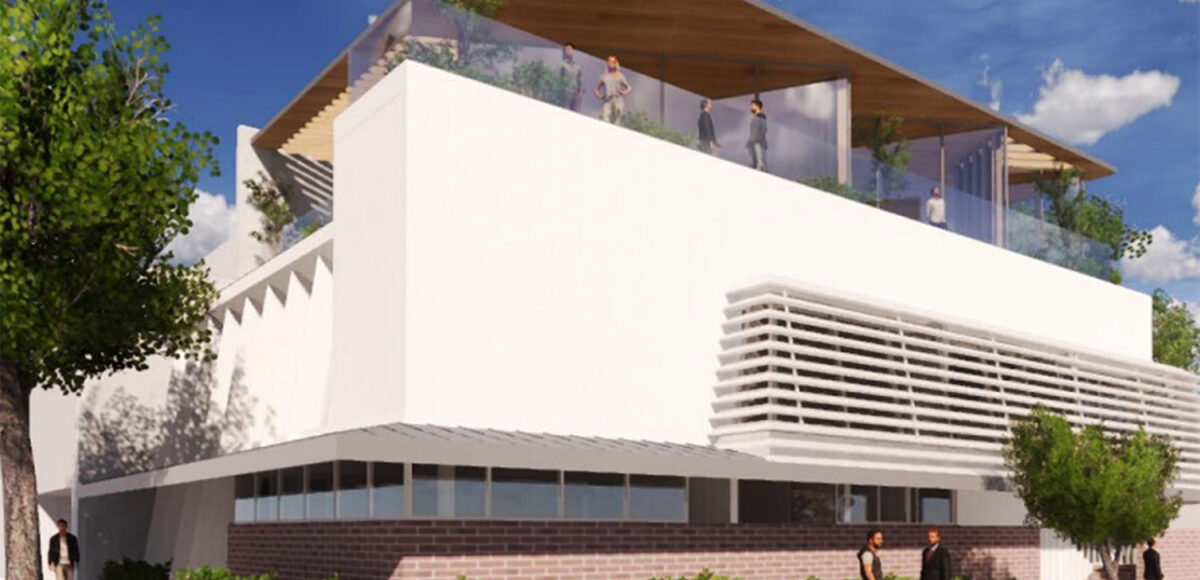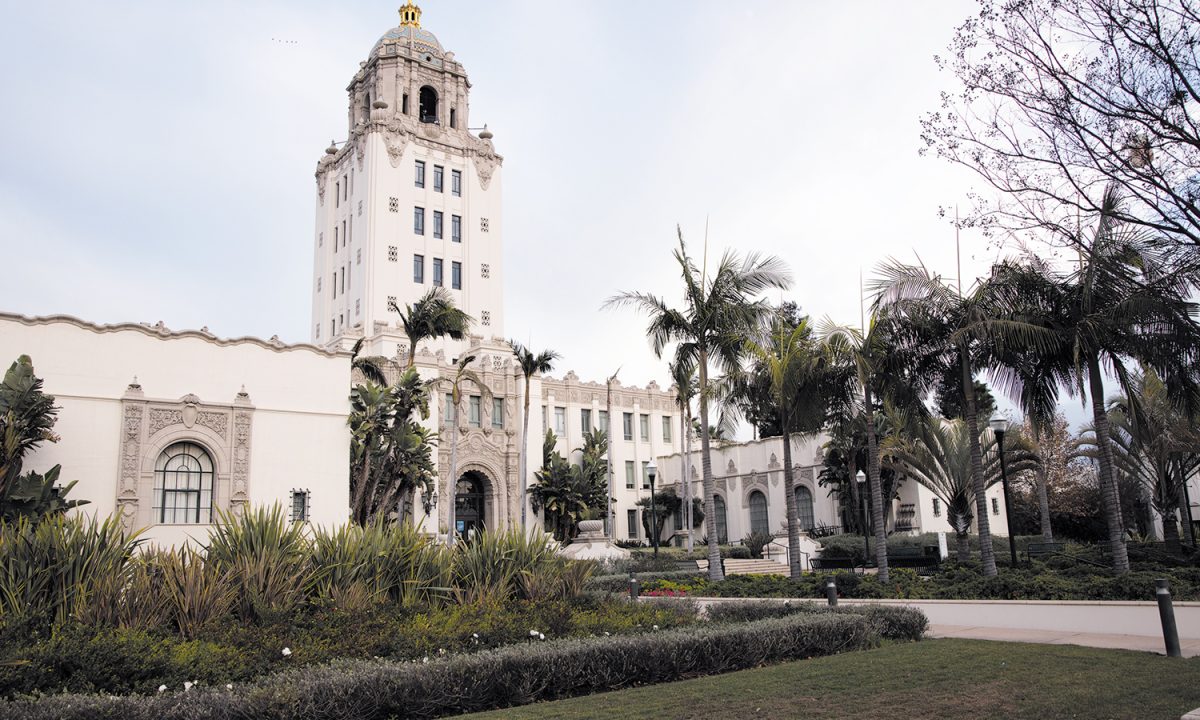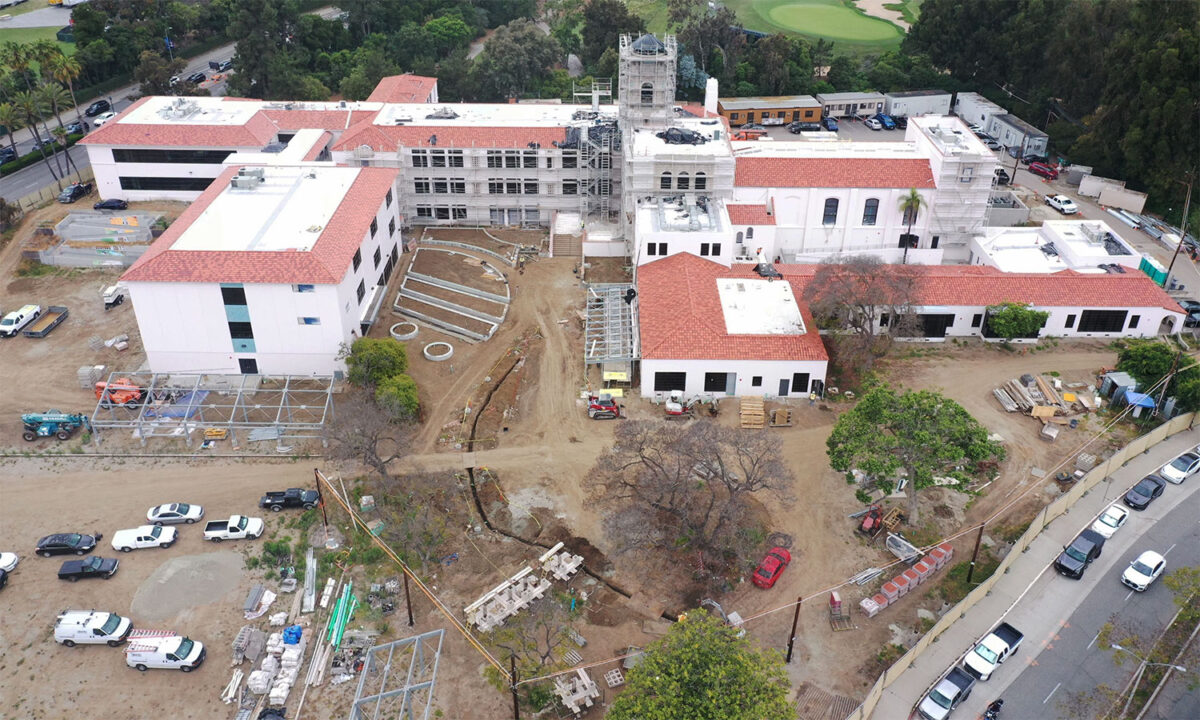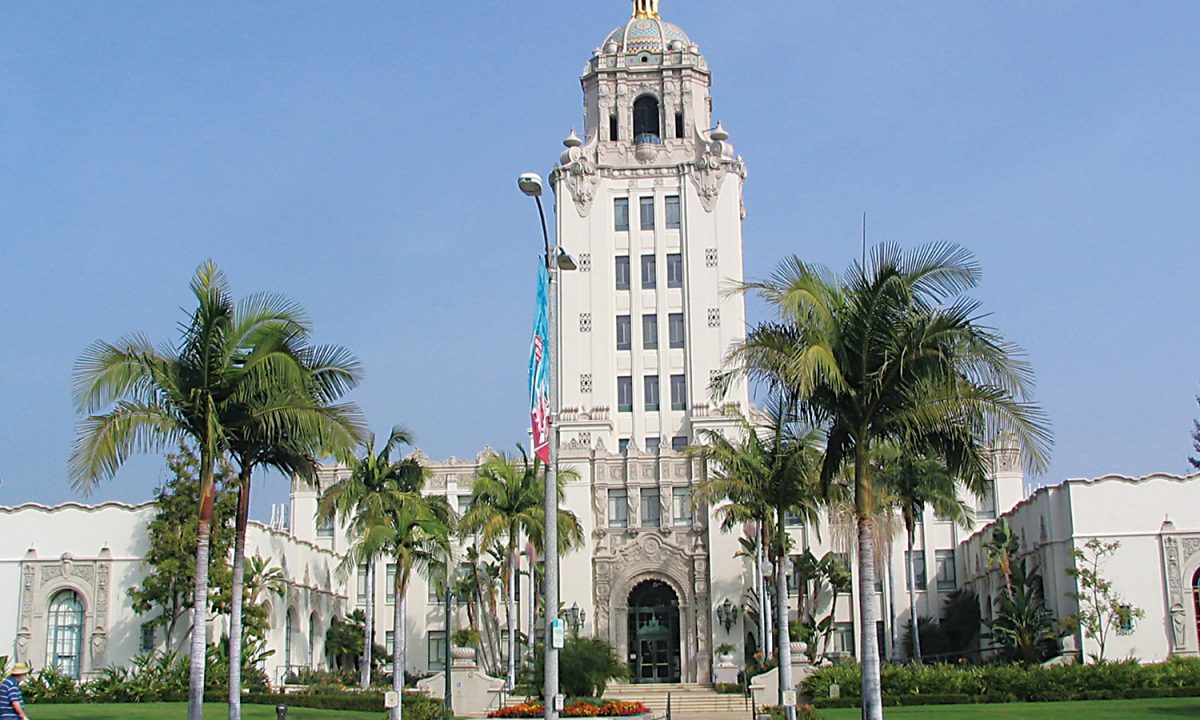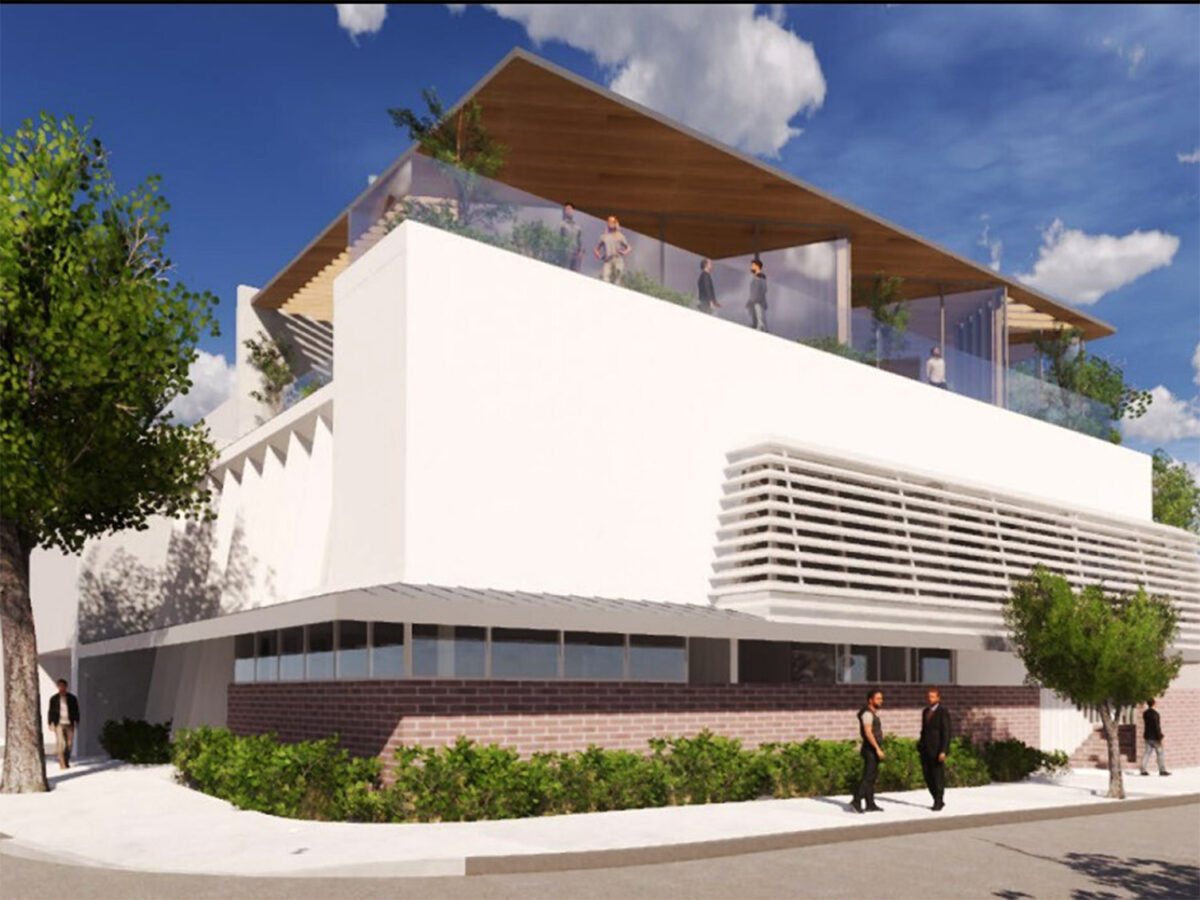The Beverly Hills City Council on Feb. 20 approved plans to build a new third story and outdoor terrace on top of the historic Darrow Office Building, 9884 S. Santa Monica Blvd. In doing so, the council denied an appeal by representatives of the adjacent Peninsula Beverly Hills, who contended that the project would negatively impact hotel guests and neighborhood residents.
A Jan. 23 hearing on the project ran into the early hours of the next morning, as representatives for the applicant—Impact Real Estate Group, LLC—and the appellant deliberated extensively about potential impacts and mitigation efforts. Ultimately, the council directed staff to devise a draft resolution approving an amended project that incorporated the Peninsula’s concerns.
The draft resolution also scrapped Impact’s request for a Historic Incentive Permit and sought only a Development Plan Review, adding a code compliant rubbish room and modified loading dock in the building’s rear.
But some concerns remained, and weeks after staff was directed to write the draft resolution, representatives for the Peninsula and Impact requested additional modifications to conditions on live events, the terrace kitchen and the start time for construction. After roughly an hour of discussion on Feb. 20, the council approved most of the Peninsula’s proposals, and rejected Impact’s request for an early construction start time.
“As I stated earlier, I am willing to support the requests that were given to us,” Councilmember Lili Bosse said. “I think they’re fair, I think they’re reasonable, I think they’re in keeping with the conversation we had until two in the morning [in January].”
During that hearing, the council decided that “high noise-generating construction activities” would not start before 9:30 a.m., though Impact representatives on Feb. 9 requested that this be changed to 9 a.m., City Planner Masa Alkire said.
A week later, Peninsula representatives asked that the council maintain the 9:30 a.m. start time and requested that live events be prohibited from the terrace and that Darrow staff install new mechanical and ventilation systems for a kitchen on the building’s terrace.
Attorney Victor De la Cruz, on behalf of the Peninsula, said that construction on the nearby Rosewood Residences does not start until 9:30 a.m., “out of an effort to be a good neighbor, and we think that’s appropriate here.”
Impact attorney Benjamin Hanelin, however, claimed that conditions imposed on the Rosewood project allow construction to begin at 9 a.m., which is already a full hour after the city standard of 8 a.m. He added that starting construction at 9:30 a.m. would exacerbate costs and lengthen the construction process.
The council members were firm in their decision to prohibit construction before 9:30 a.m. They also said it was unnecessary to add conditions restricting live entertainment, given that the municipal code prohibits such events outside of the business triangle, and given that the draft resolution limits terrace attendance to 17 people and requires that the project be returned to the Planning Commission for review if there are more than three noise complaints.
“That is superfluous, and it wasn’t brought up at the time [of the January hearing] so I’m okay with the way [the resolution] is,” Vice Mayor Lester Friedman said.
De la Cruz’s request that Darrow staff install new kitchen and ventilation equipment to “filter odors” spurred the most debate.
“If they can do this, surely the Darrow building can,” De la Cruz said. “Barbecues, smell and smoke simply are not something that the Peninsula’s most discerning guests could tolerate.”
While De la Cruz said that his team sent Impact a sampling of ventilation systems ranging between approximately $2,000 and $3,000, Impact representatives said the costs could end up being much higher after installation and other factors are accounted for.
“We’re not talking about a kitchen serving … 200 people. It’s just a little grill,” Hanelin added. “This idea that this little grill is going to create, if you look at their language — ‘noxious fumes’ … I think that’s just overkill.”
Friedman proposed implementing a “dollar cap” on the ventilation costs and sending the project back to the Planning Commission if the costs exceeded that cap, but Councilmember Sharona Nazarian worried that would cause unnecessary delays.
Bosse said she did not feel comfortable assigning a cap when none of the councilmembers or applicant and appellant representatives could agree on a fair number, and Friedman said he would accept the new condition regardless of the costs.
“I don’t think it’s going to be a high amount of money,” he said.
The council voted 4-0 in favor, with Councilmember John Mirisch absent. There were no public comments.
The Feb. 20 decision caps off Impact’s months-long effort to push the project through the approval process. After the Planning Commission approved the project on July 13, 2023, Peninsula representatives filed an appeal petition on July 26, claiming the project materials did not accurately reflect long-term impacts on the Peninsula, the project would severely increase traffic and reduce parking, and the terrace would cause noise and privacy issues for hotel guests.
In a Jan. 22 letter to the City Council, Hanelin wrote that “the appeal is entirely without merit and should be denied.” He added that “while we have been unable to resolve all issues,” there have been meaningful discussions between the parties, and he offered as “an alternative path” many of the changes that were adopted in the draft resolution.
Constructed in 1946 and designed by master architect John Lautner, the Darrow is a prominent example of Late Modern architecture and is particularly notable for its long horizontal louvers—angular slats that let in light—stacked on the exterior walls.
The project is being designed by architect Hagy Belzberg, who also designed Holocaust Museum LA.



